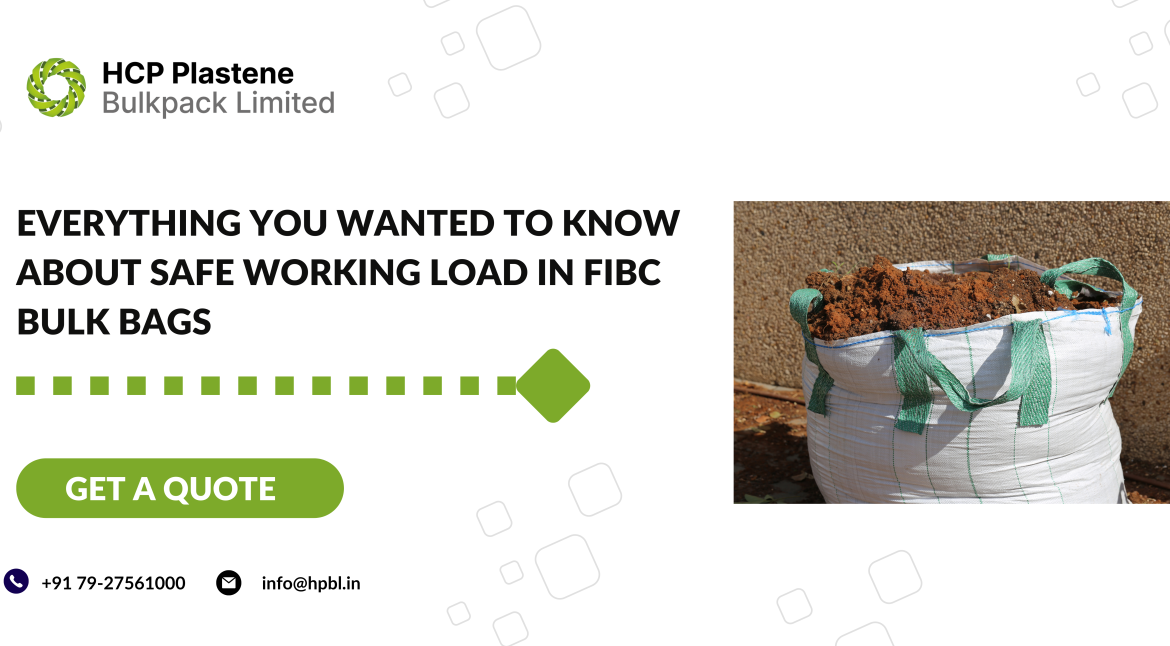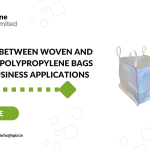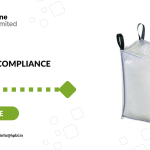Safe handling of flexible intermediate bulk containers (FIBCs) is crucial if your organization uses them. This involves strictly adhering to the manufacturer’s instructions in addition to any instructions provided by a bulk bag provider. FIBC bulk bags are subject to a number of safety requirements, with Safe Working Load (SWL) serving as a particularly helpful indicator to guarantee that bulk bags are handled appropriately. We’ll go into greater detail on safe working load (SWL) in this article and explain everything you wanted to know about it.
What is Safe Working Load in FIBC Bulk Bags?
The maximum capacity that FIBC containers can safely transport is provided by the safe working load. SWL is usually shown in pounds, and in order to prevent accidents and damage, this limit must be followed. To get to SWL, FIBCs are designed and manufactured with a variety of factors in mind.
The Importance of SWL in FIBC Bulk Bags
Working with FIBC bulk bags is made more secure by Safe Working Load. Workers may handle them with greater confidence because they are properly constructed to sustain specified weights, eliminating the possibility of injury or disaster. Knowing SWL not only increases job safety but also keeps bags from rupturing or tearing, which stops spills, waste, and losses.
You can protect machinery by following safe working load guidelines. Hoists and other lifting apparatus may experience stress if bulk bags are loaded above their SWL. This may occasionally result in the equipment failing entirely. In addition to being costly to fix, this causes costly downtime as the operation stops.
Calculating SWL for FIBC bulk bags
Numerous tests must be conducted in order to determine the safe operating load of FIBCs. You’ll need a few metrics to finish the calculation in order to determine the precise safe working load of a FIBC container. You must first determine the bulk bag’s total volume. Usually, this is shown in cubic feet. The density per square foot of the substance you want to transport or store in a FIBC is also important to know. The safe working load of a FIBC is then calculated by multiplying these two figures together.
Best Practices for Maintaining SWL in FIBC Bulk Bags
When managing FIBC containers, there are multiple strategies to maintain a safe working load. First and foremost, there must be explicit rules governing lifting operations, especially when it comes to intricate tasks. It is essential to plan ahead and invest in training, which should include manual handling and lifting operations standards. To make sure the highest safety criteria are being fulfilled, risk assessments must also be completed.
Monitoring the functionality and stability of lifting apparatus, such as hoists, cranes, and forklifts, is also crucial. Before approving equipment for use, comprehensive evaluations must be completed in order to prepare for failure. It’s crucial that equipment is positioned strategically to reduce the duration of time lifts and connected FIBCs stay suspended overhead individuals, even when SWL and important safety regulations are being observed.
Choosing the Right FIBC Bag on the basis of SWL Requirements
Although all varieties of FIBCs offer an affordable and practical packing option, choosing an appropriate bulk container requires careful consideration of the safe working load. Fortunately, if you know the density of the items you want to handle and the volume of a bag, calculating a safe working load is not too difficult. Knowing a bag’s safety factor can help you better understand SWL and determine whether a bag can be recycled or thrown away after being used several times.
HPBL’s Commitment to SWL Standards
HPBL prioritizes safety and performance by ensuring its FIBC bulk bags meet stringent SWL standards. With a focus on precision manufacturing, robust material selection, and compliance with international safety guidelines, HPBL’s bags deliver unmatched reliability. HPBL’s expertise empowers businesses to safely and efficiently handle bulk materials, minimizing risks while optimizing productivity. By choosing us, you invest in quality, safety, and operational excellence.









